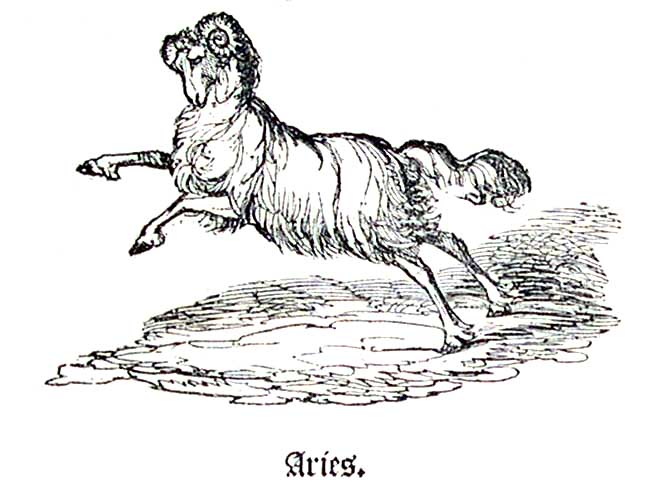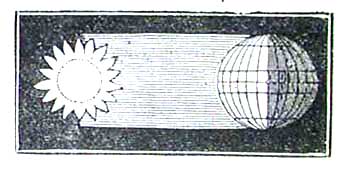March 20.
St. Cuthbert, Bp. of Lindisfarne, A.D. 687. St. Wulfrau, Abp. of Sens, A.D. 720.
St. Cuthbert.
Of this saint there will be mention hereafter.
CHRONOLOGY .
1727. Sir Isaac Newton died; he was born December 25th, 1642.
1751. Frederick, prince of Wales, father of king George III. died aged 44.
1793. Died William Murray, earl of Mansfield. He was born on the 2d of March, 1705, and during thirty years, and until his death, presided as lord chief justice of the court of King's Bench. He was eminent as a lawyer, and dignified as a judge. It is said that he altered the common law of England, by ingrafting upon it the civil law in his decisions. As an elegant scholar, of highly cultivated and vigorours intellect, he shone in the constellation of great men, which arose in the reign of queen Anne. In eloquence and beauty of diction, he outrivalled his predecessors, and has not been excelled by any successor in the high office he filled.
1811. Napoleon, son of the late emperor of France, by the empress Maria Louisa, was born, and received the title of king of Rome.
On the 20th of March, the sun enters the constellation [Aries zodiacal sign] Aries, or the Ram, which is the first zodiacal sign; and this day is the first day of Spring.
By an accident, the remarks relating to SPRING were inserted under MARCH 6, instead of this day: and as the error is thus particularly noticed, in order as far as possible to rectify it, the reader will please to consider all that has been said on the sixth of March as applicable to the twentieth alone. The editor, while acknowledging, and craving pardon for a vexatious and unpurposed misrepresentation, will endeavour to set a watch upon himself in future, to guard against a similar accident.
Aries, or the ram, as a zodiacal sign, is said to have been derived by the Greeks from the golden fleece brought from Colchis by Jason, about 1263 years before Christ; but as it is a hieroglyphic on Egyptian monuments, it is of higher antiquity, and symbolizes that season when sheep yean [sic] their lambs. The people of Thebes slew a ram in honour of Jupiter Ammon, who personifies the sun in Aries, and is represented by ancient sculpture and coins with the horns of a ram on his head. The Hebrews at this season sacrifice a lamb, to commemorate their deliverance from Egypt. Aries, or the ram, was the ensign of Gad, one of their leaders.

Aries.
VERNAL EQUINOX.
The remarks on the Vernal Equinox, immediately following, are communicated by a respected scientific friend to the editor.
This is a day of great consequence in the year, and one that must excite many associations in the mind of the astronomer, and of every one who entertains a due reverence for our sacred records. The sun on this day passes the imaginary line in the heavens, called the equator, or equinoctial; it being the middle circle equally distant in every part from the north or the south poles. The line is passed to an observer on Greenwich hill, at ten minutes past nine in the morning; and, consequently, when it is on the meridian, or its highest point at noon, it will appear to every observer in the united kingdom at some distance from the equator. It is commonly said, that at this time the day is equal to the night all the world over; but this is a vulgar error. The day is not equal to the night in this country; that is the sun appears for more than twelve hours above the horizon, and, consequently, a less time than twelve hours elapses before it shines again to us in the morning. Besides, the fallacy of this common saying is perceived at once by any one who considers, that the inhabitant of the north pole, if there is any inhabitant there, has already seen for some days the sun above his horizon, and it will not set to him for above six months. The day then is not equal to the night, either in the united kingdom, or at the north pole. We will leave to the astronomer to determine at what part of the earth this circumstance really takes place; in the investigation of the problem he may encounter some difficulties, of which at present he is probably not aware. The sun crosses the equinoctial line at ten minutes past nine; it was therefor at its rising south of that line, and at its setting it will be north of that line. The line it marks out in the heavens is an arc of a spiral; but had it risen and set in the equinoctial lane, the arc would have been circular.
To leave, however, the circumstances peculiarly relative to astronomy, let us consider this day in another point of view. The sun and the moon are the regulators of days, and months, and years, and times, and season. Every nation in the world pays some regard to their motions; and in this country they are the subjects of legislative enactments—enactments which have been laughed at by our makers of almanacs; disregarded by the church, though sanctioned in its rubrics; and set at naught by courts of justice, whose openings at certain periods depend on prescribed appearances in the heavens. Of this, hereafter, sufficient proof will be given; and, in thus noticing the errors of past times, there is a chance, that a statute of importance, certainly, as it has been thought worthy of legislation, should not be hereafter violated without the interpositions of the legislature.
Our ancestors began their year about this time, and not without reason; for they had for it the sanction of a divine command. To the Israelites it was commanded, that this should be the beginning of their sacred year, on which the great festivals prescribed by their law should depend. Their Civil year begins in September, and they continue to observe the command, having an almanac founded on the complicated motions of the sun and moon, whose calculations are of a very subtle nature, and whose accuracy far exceeds that of the polished nations of Europe. That the year should begin either at the vernal or the spring equinox, or at the autumnal equinox, good reasons may be given; but for our taking the first of January for the commencement of the year, nothing more can be said, than the old theme,
Sic volo, sic jubeo, stet pro ratione voluntas.
—Such is my will, the sun and moon may move as they please.
Except for the refraction of the atmosphere, the inhabitants of the equator would have at all times twelve hours' day and twelve hours' night; the sun being north or south of this circle not causing any difference, for the equator and ecliptic being both great circles of the sphere, the two points of intersection must be in the same diameter.
By the almanac it will be found, that there are nearly eight days more in the interval between the vernal and the autumnal equinox, than between the latter and the return of the vernal equinox. As, therefore, from the vernal to the autumnal equinox, the sun is on the northern side of the equator, our summer occurring during this period, gives us an advantage of nearly eight days, in this respect, over the southern himisphere. This difference arises from the oval or elliptical form of the earth's orbit. The earth, therefore, being at different distances from the sun during the year, it is found to move with different velocities; moving slowest when furthest from the sun, and quickest when nearest to that luminary. It happens to be at its greatest distance just after our Midsummer, and moving consequently slower during our spring and summer months; our summer is about eight days longer than that of the southern hemisphere, our winter eight days shorter than theirs.
The annexed diagram will exhibit the equinoctial condition of the earth; the sun's rays at their noon falling vertically to the inhabitants of the equator.

Care Sunday.
Care Sunday; care away,
Palm Sunday, and Easter day.Care Sunday is the fifth Sunday from Shrove Tuesday, consequently it is the next Sunday before Palm Sunday, and the second Sunday before Easter. Why it is denominated Care Sunday is very uncertain. It is also called Carle Sunday. A native of Newcastle-upon-Tyne* [1] observes, that in that town, and many other places in the north of England, peas after having been steeped a night in water, are fried with butter, given away, eaten at a kind of entertainment on Carle Sunday, and are called Carlings, "probably as we call the presents at fairs, fairings." To this he attaches a query, whether Carlen may not be formed from the old plura[l] termination in en, as hosen, &c." The only attempt at a derivation of the word Care, is, that "the Friday on which Christ was crucified, is called in German both Gute Freytag and Carr Freytag;" and that the word karr signified a satisfaction for a fine, or penalty.* [2] The inference is corroborated, by the church of Rome anciently using rites on this day peculiar to Good Friday, whence it was also called Passion Sunday. It is noted in an old calendar, that on this day "a dole is made of soft beans," which was also "a rite in the funeral ceremonies of heathen Rome." This "dole" of soft beans on Care Sunday, accounts for the present custom of eating fried peas on the same day. No doubt the beans were a very seasonable alms to help out the poor man's lent stock of provision. "In Northumberland the day is called Carling Sunday. The yeomanry in general steep peas, and afterwards parch them, and eat them on the afternoon of that day, calling the carlings. This is said by an old author, to have taken its rise from the disciples plucking the ears of corn, and rubbing them in their hands."† [3] Hence it is clear, that the custom of eating peas or beans upon this day, is only a continuation of the unrecollected "dole" of the Romish church. It is possible, however, that there may have been no connection between the heathen funeral rite of giving beans, and the church donation, if the latter was given in mere charity; for there was little else to bestow at such a time of the year, when dried pulse, variously cooked, must have been almost the only winter meal with the labourer, and a frequent one with his employer.
The couplet at the head of this article Mr. Nichols says he heard in Nottinghamshire. There is another,
Tid, Mid, Misera
Carling, Palm, Paste Egg day.The first line is supposed to have been formed from the beginning of Psalms, &c. viz. Te deum—Mi deus—Miserere mei.‡ [4]
But how is it that Care Sunday is also called Carl Sunday and Carling Sunday; and that peas, or beans, of the day are called carlings? Carle, which now means a churl, or rude boorish fellow, was anciently the term for a working countryman or labourer; and it is only altered in the spelling, without the slightest deviation in sense, from the old Saxon word ceorl, the name for a husbandman. The older denomination of the day, then, may not have been Care but Carl Sunday, from the benefactions to the carles or carlen. These are still the northern names for the day; and the dialect in that part of the kingdom is nearer to Saxon etymology. But whether the day were called Carle or Care Sunday it is now little known, and little more can be said about it, without the reader feeling inclined to say or sing,
"Begone dull Care."
FLORAL DIRECTORY.
Dog's Violet. Viola Canina.
Dedicated to St. Wulfran.